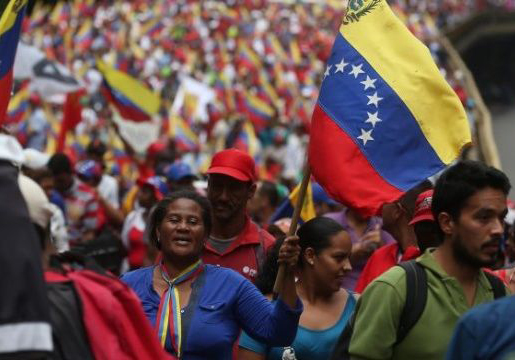
Aug 3, 2017 | News
The ICJ is deeply concerned by the Constituent Assembly elections held in Venezuela on 31 July and the violence that accompanied the process and left a number of people killed, injured or arbitrarily detained.
The ICJ considers that the election of a National Constituent Assembly (NCA) failed to comply with the Article 347 of the current Constitution, which provides the legal basis for convening of an NCA. In particular, a significant portion of the members of the NCA should be chosen in open and universal elections, but instead are to be selected from restricted social sectors.
Such arrangements undermine the right to direct, free, equal and secret elections recognized under international human rights standards, the Geneva-based organization adds.
“A Constitution which does not guarantee the basic principles of the rule of law and the validity of fundamental human rights and freedoms not only violates the international obligations of the Venezuelan State, but can also be used as a means of undermining the human rights of Venezuelans,” said Sam Zarifi, Secretary General of the ICJ.
The ICJ also calls for a prompt and independent investigation into alleged electoral fraud on the day of the poll.
The ICJ says that irrespective of its legitimacy, the new NCA must respect human rights and rule of law principles.
In particular, until the approval of a new Constitution, the NCA must respect the current Constitution of 1999, especially in terms of judicial independence, and protection of human rights.
Similarly, the new Constitution, which the NCA will draft, must also fully guarantee the basic principles of the rule of law, including the separation of powers, legislative autonomy, the independence of the judiciary, the subordination of military forces to the civil authority and the principle of legality and judicial control of executive actions.
The new Constitution also must fully guarantee the protection of human rights and fundamental freedoms.
It must enshrine the prohibition of trials of civilians by military courts, and ensure that states of emergency respect the requirements and guarantees of the Covenant International Covenant on Civil and Political Rights (ICCPR) and other international law and standards, the ICJ adds.
The ICJ also considers that the new Constitution, in addition to incorporating the human rights and fundamental freedoms already contained in the current Constitution, should add the express prohibition of extrajudicial executions, enforced disappearances, torture and ill-treatment, arbitrary detention, and other serious human rights violations.
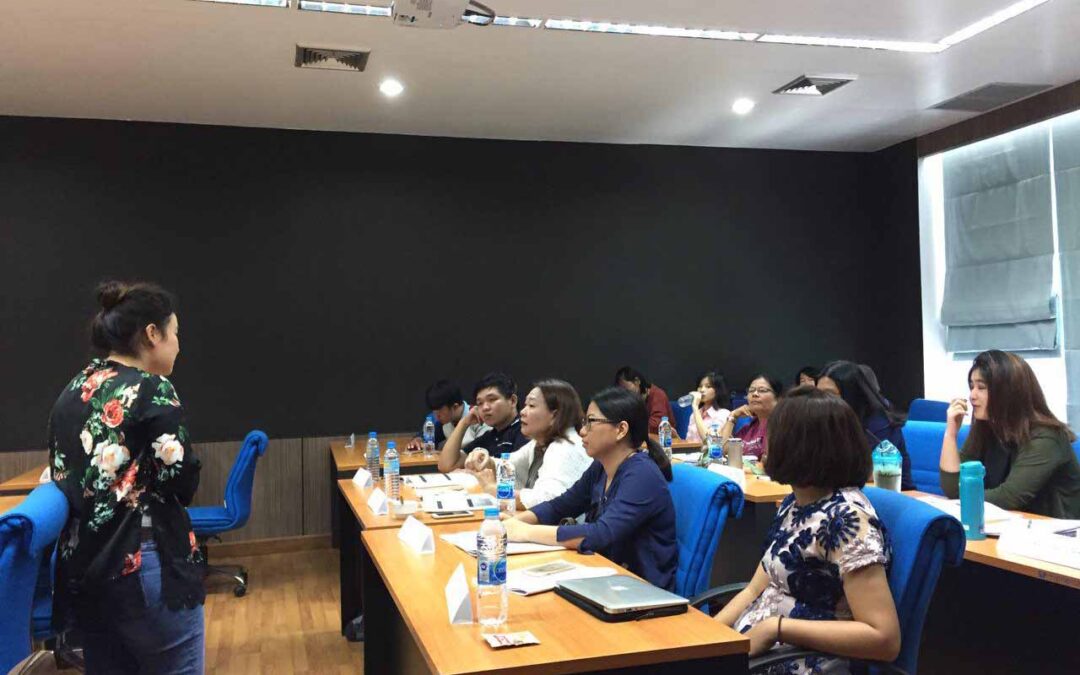
Jul 31, 2017 | News
On 29-31 July 2017, the ICJ, in collaboration with Chiang Mai University’s Faculty of Law, held a workshop on “Introduction to Business and Human Rights & Basic Principles on Documenting Human Rights Violations” for 25 academics, NGO representatives and lawyers in Chiang Mai.
The objective of the workshop, held at the Chiang Mai University campus, was to provide an overview of the field of business and human rights, including the UN Guiding Principles on Business and Human Rights and its “Protect, Respect and Remedy” framework, which Thailand affirmed its commitment to on 31 May 2017, and the need for a binding treaty on business and human rights.
Day 1 focused on the UN framework as it applies to business and human rights, investment law, and strategic litigation.
Day 2 focused on criminal and civil litigation, women’s rights and business, children’s rights and business, and land rights.
Day 3 focused on the basic principles that apply to documenting and reporting on human rights violations.
The speakers at the workshop were:
- Daniel Aguirre, ICJ International Legal Adviser, Myanmar
- Irene Pietropaoli, Expert consultant on business and human rights
- Sanhawan Srisod, ICJ Associate National Legal Adviser, Thailand
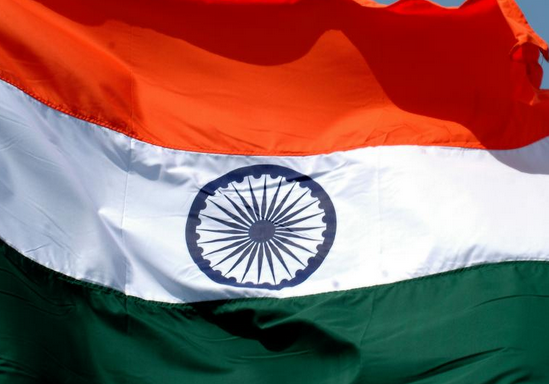
Jul 30, 2017 | News
Indian authorities must ensure full compliance with the Supreme Court’s historic judgment directing independent investigations into alleged extrajudicial killings by the police and security forces in Manipur from 1979 to 2012, the ICJ said today.
The ICJ is calling for independent, impartial and thorough investigations into all cases, in line with international standards.
It is further calling on Indian authorities to ensure all accused are brought to justice in fair trials in ordinary civilian courts, and that the families of victims are accorded access to an effective remedy and reparation for any human rights violations.
“Through this judgment, the Indian Supreme Court has given fresh hopes to the victims of human rights violations in India who seek justice,” said Frederick Rawski, ICJ’s Asia Pacific Programme Director.
“This bold and principled decision should finally end the cynical attempts by Indian security forces and law enforcement agencies to shield themselves from criminal accountability,” he added.
On 14 July 2017, the Supreme Court ordered the Director of the Central Bureau of Investigations (CBI) to constitute a Special Investigation Team (SIT) within two weeks to go through the records of at least 85 cases of alleged extrajudicial killings that took place in Manipur between 1979 and 2012, lodge First Information Reports (FIRs), and complete investigations where required.
The Court also directed that the investigations must be completed by 31 December 2017.
The Court noted that the Manipur Police had not registered any FIR at the instance of the family members of the deceased.
It also held that the Manipur Police could not be expected to carry out impartial investigations as some of its own personnel were said to be involved in the “fake encounters”.
India has a legal obligation under Articles 2(3) and 6 of the International Covenant on Civil and Political Rights (ICCPR), to which it is party, to investigate allegations of violations of the right to life promptly, thoroughly and effectively through independent and impartial bodies and to ensure that those responsible are brought to justice.
On 27 July 2017, the CBI constituted a five-member Special Investigating Team in accordance with the Supreme Court’s directions.
“The CBI’s compliance with the Supreme Court’s directions through the prompt constitution of an investigation team is a welcome step,” added Rawski. “It must now ensure that investigations are thorough, independent, impartial and in line with international standards, including the ICCPR.”
The ICJ urged the State of Manipur and the Union of India to extend full cooperation and assistance to the Special Investigating Team to complete the investigations without any hurdles or delays.
Other allegations of human rights violations in the petition must also be investigated in line with international standards, the ICJ said.
Contact
Frederick Rawski, ICJ’s Asia Pacific Regional Director (Bangkok), e: frederick.rawski(a)icj.org
Background
Extrajudicial Execution Victim Families Association, Manipur (EEVFAM) and Human Rights Alert filed a petition in the Supreme Court of India in 2012, alleging that from 1979 to 2012 over 1,528 cases of fake “encounter killings” had taken place in Manipur.
They further alleged that the State government had not conducted proper investigations into the allegations of excessive use of force by the security forces and the police and requested the Court to constitute a special investigation team, comprising police officers from outside the state of Manipur, to conduct a probe into the alleged unlawful killings.
In July 2016, the Supreme Court emphasized the need for accountability for human rights violations by security forces, including under the Armed Forces Special Powers Act (AFSPA), and directed the petitioners to present detailed documentation in support of their allegations.
In April 2017, the Supreme Court dismissed the Central Government’s curative petition requesting the Court to reconsider its July 2016 judgment on the ground that it hampered the security force’s ability to respond to insurgent and terrorist situations.
The killings mentioned in the petition all took place in areas considered “disturbed” under AFSPA. Once an area is declared “disturbed”, armed forces are given a range of “special powers”, which include the power to arrest without warrant, to enter and search any premises, and in certain circumstances, use lethal force.
AFSPA has facilitated gross human rights violations by the armed forces in the areas in which it is operational.
Human rights organizations, including the ICJ, and several UN human rights bodies have recommended that the AFSPA be repealed or significantly amended.
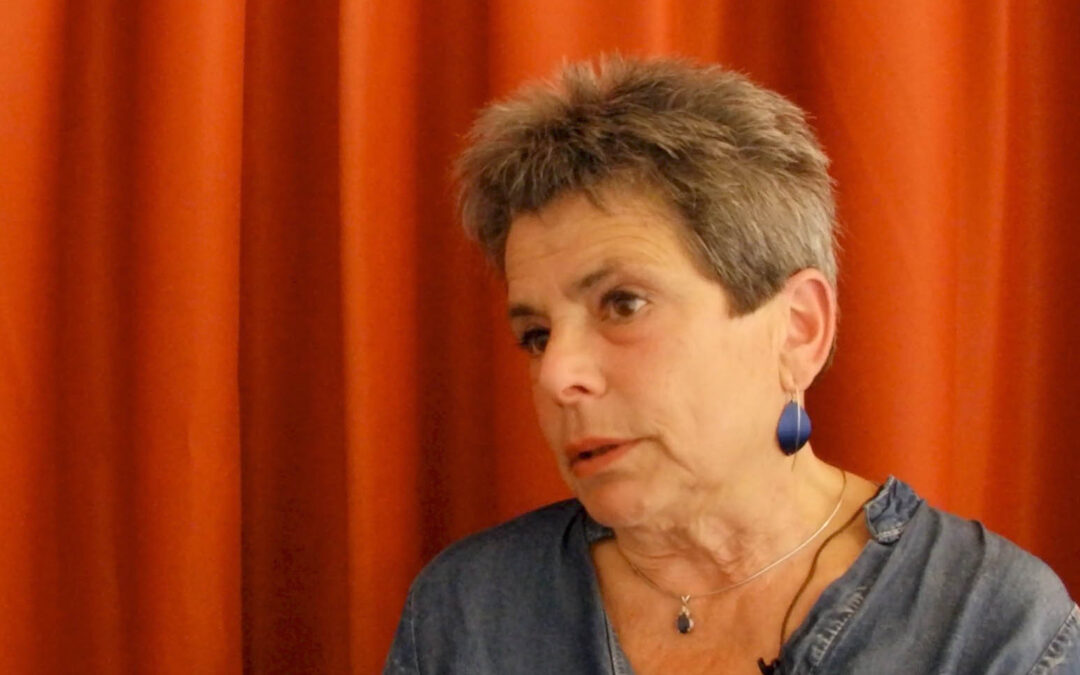
Jul 28, 2017 | Multimedia items, News, Video clips
The ICJ continues its series of profiles of its women Commissioners with an interview with Prof. Jenny E. Goldschmidt, who is currently serving her third term as an ICJ Commissioner.
She was first elected to the Commission in 2003 and re-elected in 2008 and 2013.
She is a Member of the Advisory Board of Nederlands Juristen Comité voor de Mensenrechten (NJCM), and NJCM Public Interest Litigation Group. The NJCM is the ICJ’s National Section in the Netherlands.
In this wide-ranging interview, Jenny describes how she started out her career as a lawyer by studying Constitutional law; how her interests began to focus on the haves and the have nots and from there her interest in human rights developed.
She explains how she has always combined academic research and teaching with practical work, particularly during her years as the President of the Equal Treatment Commission in the Netherlands. She also stresses the importance of working in an inter-disciplinarian manner.
For example, she explained that after academics had developed concepts of direct discrimination, indirect discrimination, and systemic discrimination, these concepts were taken on board by lawyers and have been incorporated into case law.
She gave the example of how the European Court of Human Rights and the European Court of Justice are now incorporating this type of stereotyping into their equality concept.
She emphasized human rights law must protect women and that this protection must be embodied in law.
She considered that it is vital to take cases to the Treaty Bodies and courts everywhere to establish severe measures against discrimination and domestic violence.
But human rights lawyers also need sociologists to help find the arguments that convince people and how we can influence their behavior.
“Sometimes soft law and mediation can be effective and you need other disciplines to show in which cases which instruments are most effective,” she said.
She explained that because women are not a homogenous group and because of migration and all the divisions in society, inter-sectionality has become one of the crucial challenges for women’s rights.
She believes in combining a focus on the general problems which all women face as well as taking into account that some women are even less equal than others – that women who belong to minorities, that women who are disabled, that girls are more vulnerable than the majority of women.
“I think one of the things that the disability convention tries to do by giving a specific provision for women and girls rights is that it forces the authorities, the Treaty Bodies, the national and international institutions to be aware of the fact that we are talking about women and disabled people and that we have to take two perspectives at the same time into account,” she added.
When asked what advice she would give a woman who wants to pursue a career in human rights she said: “Don’t give up! And don’t think it will be easy. Human rights world still is a man’s world.”
Jenny Goldsmith is currently Emeritus Professor of Human Rights Law, and was from 2007-2014 Director of the Netherland Institute of Human Rights at the University of Utrecht.
From 1994-2003 she was President of the Equal Treatment Commission of the Netherlands.
She is on the board of Disability Studies in the Netherlands and involved in several NGOs of disability rights, democracy, and human rights.
Watch the interview:
The series of profiles introducing the work of ICJ Commissioners and Honorary Members on women’s rights was launched on 25 November 2016 to coincide with the International Day to Eliminate Violence against Women and the first day of the 16 Days of Activism Against Gender-Based Violence Campaign.
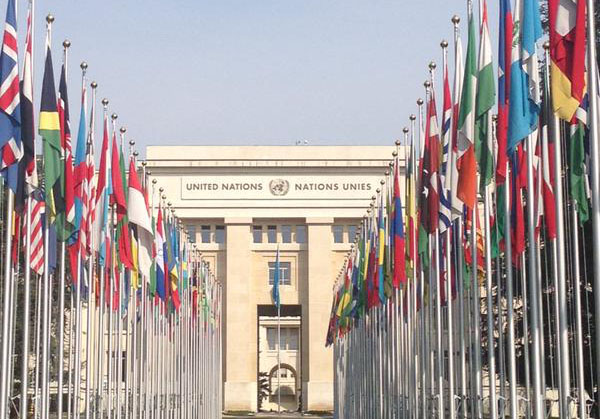
Jul 27, 2017 | News
Pakistani authorities must implement the United Nations Human Rights Committee recommendations to ensure compliance with Pakistan’s human rights obligations under the International Covenant on Civil and Political Rights (ICCPR), the ICJ said today.
The Human Rights Committee, the treaty-monitoring body that oversees countries’ implementation of and compliance with the ICCPR, reviewed for the first time Pakistan’s human rights record under the Covenant on 11 and 12 July.
It issued its “Concluding Observations”, along with its recommendations, today, on 27 July.
“While it is encouraging to see Pakistan’s increased engagement with United Nations human rights mechanisms in recent years, it is deeply worrying that since ratifying the ICCPR, Pakistan’s human rights situation has worsened in a number of aspects, including with the restoration of the death penalty and the introduction of military trials for civilians,” said Livio Zilli, ICJ’s Senior Legal Adviser and UN Representative.
“It is of the utmost importance for Pakistan to reverse this trend, and make sincere efforts to implement the recommendations made by the Committee,” added Zilli.
The Committee’s recommendations include:
- Ensure the National Commission for Human Rights is able to carry out its mandate independently and effectively;
- Reinstate the moratorium on the death penalty;
- Abolish mandatory death penalty and ensure the death penalty is provided only for the “most serious crimes” involving intentional killing;
- Criminalize enforced disappearance and put an end to the practice of enforced disappearance and secret detention;
- Ensure that all allegations of enforced disappearance and extrajudicial killings are promptly and thoroughly investigated; all perpetrators are prosecuted and punished with penalties commensurate with the gravity of crimes;
- Review legislation relating to the military courts with a view to abrogating their jurisdiction over civilians as well as their authority to impose the death penalty;
- Reform the proceedings of military courts and bring them into full conformity with Articles 14 and 15 of the Covenant to ensure a fair trial;
- Ensure that all elements of the crime of torture are prohibited in accordance with article 7 of the Covenant;
- Repeal all blasphemy laws or amend them in compliance with the strict requirements of the Covenant; and
- Review policies and legislation on registration of international NGOs, including the vague grounds on which registrations can be cancelled.
This is the first time Pakistan’s human rights record is being reviewed by the Human Rights Committee since Pakistan ratified the Covenant in 2010.
Contact:
Livio Zilli, ICJ Senior Legal Advisor and UN Representative (Geneva), e: livio.zilli(a)icj.org
Reema Omer, ICJ International Legal Adviser for Pakistan (Lahore), t: +923214968434; e: reema.omer(a)icj.org
Background:
Pakistan ratified the International Covenant on Civil and Political Rights (ICCPR) in June 2010.
Following ratification/accession, every state party to the ICCPR is required to submit an initial “state report” containing information on the implementation of each provision of the treaty.
Pakistan submitted its initial state report to the Human Rights Committee in October 2015.
In light of the information provided in the State report, as well as information received from civil society, the Human Rights Committee then prepared a List of Issues containing particular issues of concern to the Committee, and asking whatever questions it sees fit in light of those concerns.
The answers provided by the State party to these questions, as well as other information submitted by civil society and others formed the basis of the “review” of the State’s compliance with the treaty, which was carried out on 11 and 12 July by the Human Rights Committee.
During the review, the Committee met with Pakistan’s delegation, headed by Federal Minister for Human Rights, Senator Kamran Michael, who presented answers to the List of Issues and responded to the Committee’s questions.
The Committee’s Concluding Observations issued today are highly authoritative, and highlight the Committee’s concerns and make recommendations to the State on improving the implementation of the ICCPR.
The ICJ made submissions to the Human Rights Committee in relation to the formulation of List of Issues in 2016 and the Review in 2017.
In its submissions, the ICJ raised concern about the inadequate legal framework on torture and other ill-treatment; the continuing practice and impunity for enforced disappearances; the incompatibility of military trials of civilians with the right to a fair trial; the incompatibility of Pakistan’s blasphemy laws with the rights to freedom of religion and belief, expression and fair trial; and the vaguely defined INGO policy.
The Human Rights Committee picked up ICJ’s concerns as its principle matters of concern and recommendations in its Concluding Observations.









